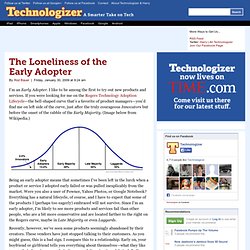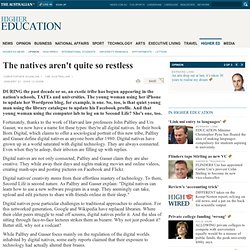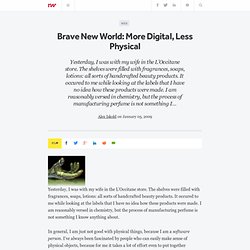

The Loneliness of the Early Adopter I’m an Early Adopter.

I like to be among the first to try out new products and services. If you were looking for me on the Rogers Technology Adoption Lifecycle—the bell-shaped curve that’s a favorite of product managers—you’d find me on left side of the curve, just after the truly courageous Innovators but before the onset of the rabble of the Early Majority. (Image below from Wikipedia.) Being an early adopter means that sometimes I’ve been left in the lurch when a product or service I adopted early failed or was pulled inexplicably from the market.
Were you also a user of Pownce, Yahoo Photos, or Google Notebook? Recently, however, we’ve seen some products seemingly abandoned by their creators. I eagerly purchased the Dash Express last year, an innovative device and service that brought two-way Internet connectivity with live traffic reporting to mobile GPS. Dash, are you stuck in traffic somewhere? I use GrandCentral for my business phone number. GrandCentral, you never call. The natives aren't quite so restless. DURING the past decade or so, an exotic tribe has begun appearing in the nation's schools, TAFEs and universities.

The young woman using her iPhone to update her Wordpress blog, for example, is one. So, too, is that quiet young man using the library catalogue to update his Facebook profile. And that young woman using the computer lab to log on to Second Life? She's one, too. Fortunately, thanks to the work of Harvard law professors John Palfrey and Urs Gasser, we now have a name for these types: they're all digital natives. Digital natives are not only connected, Palfrey and Gasser claim they are also creative.
Digital natives' creativity stems from their effortless mastery of technology. Digital natives pose particular challenges to traditional approaches to education. While Palfrey and Gasser focus mainly on the regulation of the digital worlds inhabited by digital natives, some early reports claimed that their exposure to technology had actually altered their brains. Brave New World: More Digital, Less Physical - ReadWriteWeb. Yesterday, I was with my wife in the L'Occitane store.

The shelves were filled with fragrances, soaps, lotions: all sorts of handcrafted beauty products. It occured to me while looking at the labels that I have no idea how these products were made. I am reasonably versed in chemistry, but the process of manufacturing perfume is not something I know anything about. In general, I am just not good with physical things, because I am a software person. I've always been fascinated by people who can easily make sense of physical objects, because for me it takes a lot of effort even to put together children's toys. Yet, while looking at the bottles in the L'Occitane store, I wondered: could it be that the world is shifting from physical to digital? A Brief History of Making Physical Things Before we dive into the realm of software, let's look briefly at how we got here. The main thing we learned is patterns in physical objects. Software 1.0: Why Computer-Phobia Happened to The Mainstream.
Digital kids in a digital world.